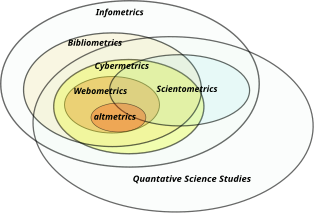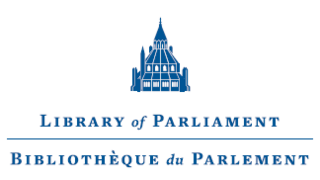
The National Center for Biotechnology Information (NCBI) is part of the United States National Library of Medicine (NLM), a branch of the National Institutes of Health (NIH). It is approved and funded by the government of the United States. The NCBI is located in Bethesda, Maryland, and was founded in 1988 through legislation sponsored by US Congressman Claude Pepper.

Information science, documentology or informatology is an academic field which is primarily concerned with analysis, collection, classification, manipulation, storage, retrieval, movement, dissemination, and protection of information. Practitioners within and outside the field study the application and the usage of knowledge in organizations in addition to the interaction between people, organizations, and any existing information systems with the aim of creating, replacing, improving, or understanding the information systems.
Personal information management (PIM) is the study and implementation of the activities that people perform in order to acquire or create, store, organize, maintain, retrieve, and use informational items such as documents, web pages, and email messages for everyday use to complete tasks and fulfill a person's various roles ; it is information management with intrapersonal scope. Personal knowledge management is by some definitions a subdomain.
The online public access catalog (OPAC), now frequently synonymous with library catalog, is an online database of materials held by a library or group of libraries. Online catalogs have largely replaced the analog card catalogs previously used in libraries.

The Scottish Parliament Building is the home of the Scottish Parliament at Holyrood, within the UNESCO World Heritage Site in central Edinburgh. Construction of the building commenced in June 1999 and the Members of the Scottish Parliament (MSPs) held their first debate in the new building on 7 September 2004. The formal opening by Queen Elizabeth II took place on 9 October 2004. Enric Miralles, the Catalan architect who designed the building, died before its completion.

The Library of Parliament is the main information repository and research resource for the Parliament of Canada. The main branch of the library sits at the rear of the Centre Block on Parliament Hill in Ottawa, Ontario. The library survived the 1916 fire that destroyed Centre Block. The library has been augmented and renovated several times since its construction in 1876, the last between 2002 and 2006, though the form and decor remain essentially authentic. The building today serves as a Canadian icon, and appears on the obverse of the Canadian ten-dollar bill.
Parliamentary informatics is the application of information technology to the documentation of legislative activity. The principal areas of concern are the provision, in a form conveniently readable to humans or machines, of information and statistics about:

The House of Commons Library is the library and information resource of the lower house of the British Parliament. It was established in 1818, although its original 1828 construction was destroyed during the burning of Parliament in 1834.
Simple Knowledge Organization System (SKOS) is a W3C recommendation designed for representation of thesauri, classification schemes, taxonomies, subject-heading systems, or any other type of structured controlled vocabulary. SKOS is part of the Semantic Web family of standards built upon RDF and RDFS, and its main objective is to enable easy publication and use of such vocabularies as linked data.

The Parliamentary Archives of the United Kingdom preserves and makes available to the public the records of the House of Lords and House of Commons back to 1497, as well as some 200 other collections of parliamentary interest. The present title was officially adopted in November 2006, as a change from the previous title, the House of Lords Record Office.
legislation.gov.uk, formerly known as the UK Statute Law Database, is the official Web-accessible database of the statute law of the United Kingdom, hosted by The National Archives. Established in the early 2000s, it contains all primary legislation in force since 1267 and all secondary legislation since 1823; it does not include legislation which was fully repealed prior to 1991. The contents have been revised to reflect legislative changes up to 2002, with material that has been amended since 2002 fully updated and searchable.

Akonadi is a storage service for personal information management (PIM) data and metadata named after the oracle goddess of justice in Ghana. It is one of the “pillars” behind the KDE SC 4 project, although it is designed to be used in any desktop environment. It is extensible and provides concurrent read, write, and query access.

The House of Lords Library is the library and information resource of the House of Lords, the upper house of the Parliament of the United Kingdom. It provides Members of the House and their staff with books, Parliamentary material and reference and research services.

A digital library is an online database of digital objects that can include text, still images, audio, video, digital documents, or other digital media formats or a library accessible through the internet. Objects can consist of digitized content like print or photographs, as well as originally produced digital content like word processor files or social media posts. In addition to storing content, digital libraries provide means for organizing, searching, and retrieving the content contained in the collection. Digital libraries can vary immensely in size and scope, and can be maintained by individuals or organizations. The digital content may be stored locally, or accessed remotely via computer networks. These information retrieval systems are able to exchange information with each other through interoperability and sustainability.

Global Memory Net (GMNet) is a world digital library of cultural, historical, and heritage image collections. It is directed by Ching-chih Chen, Professor Emeritus of Simmons College, Boston, Massachusetts and supported by the National Science Foundation (NSF)'s International Digital Library Program (IDLP). The goal of GMNet is to provide a global collaborative network that provides universal access to educational resources to a worldwide audience. GMNet provides multilingual and multimedia content and retrieval, as well as links directly to major resources, such as OCLC, Internet Archive, Million Book Project, and Google.
The following outline is provided as an overview of and topical guide to information science:

Lucene Geographic and Temporal (LGTE) is an information retrieval tool developed at Technical University of Lisbon which can be used as a search engine or as evaluation system for information retrieval techniques for research purposes. The first implementation powered by LGTE was the search engine of DIGMAP, a project co-funded by the community programme eContentplus between 2006 and 2008, which was aimed to provide services available on the web over old digitized maps from a group of partners over Europe including several National Libraries.

ISO 25964 is the international standard for thesauri, published in two parts as follows:
ISO 25964 Information and documentation - Thesauri and interoperability with other vocabulariesPart 1: Thesauri for information retrieval [published August 2011] Part 2: Interoperability with other vocabularies [published March 2013]
The Parliamentary Library of Australia is a significant research and information service that supports the Parliament of Australia. Established in 1901, the library is an integral part of the Department of Parliamentary Services and provides independent, impartial and comprehensive information to members of Parliament, namely members of the Senate and House of Representatives, their staff and the broader parliamentary community.

William Paul Jones is a pioneer of the field of personal information management (PIM). He has written extensively on the topic, holds seven patents relating to search and personal information management, and was noted for his early contribution to Planz. In 2005, he organized a seminal National Science Foundation (NSF)-sponsored event the "Invitational Workshop on Personal Information Management". His 2007 Annual Review of Information Systems and Technology survey Personal Information Management continues to be strongly cited. His 2008 book Keeping Found Things Found: The Study and Practice of Personal Information Management was well-received and followed by a three-book series, The Future of Personal Information Management, and articles in the Encyclopedia of Library and Information Sciences. This and other work describing a framework for understanding personal information management has been called "highly influential" by recognized researchers in the field of PIM. Jones' project Keeping Found Things Found was the subject of a 2004 New York Times article and a 2005 Seattle Times piece.












